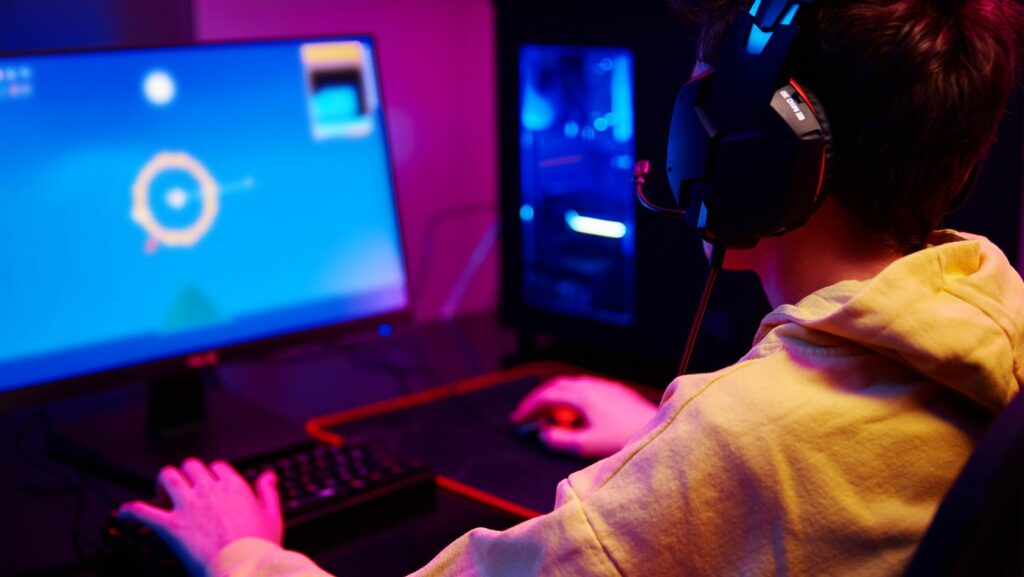In the ever-evolving world of gaming, there’s always something new on the horizon. Advancements in technology continually reshape the landscape, bringing thrilling innovations that enhance player experiences. This article dives into the latest gaming technology trends that are transforming the industry.
From cloud-based gaming to VR immersion, these trends are not just changing how games are played, but also how they’re created and perceived. They’re pushing the boundaries of what’s possible, ushering in an exciting new era for gamers and developers alike. Strap in, as we explore the future of gaming, one trend at a time.
Gaming Technology Trends
Intricacies define the world of gaming, amping up player engagement through constant advancements. With in-depth exploration, notable trends shape the future of this industry. From cloud-based gaming to virtual reality immersion, these trends define the landscape of gaming, affecting both player experiences and game development processes.
As a significant trend, cloud-based gaming offers flexibility and convenience for players. Effortlessly, gamers can now play their favorite games across devices. The hassle of hardware compatibility recedes, as games rely on cloud servers for performance. For instance, services, such as Google’s Stadia and Microsoft’s Project xCloud, allow players to easily transition from their PC to their tablet without interrupting their gaming progress.
Virtual Reality (VR) Immersion
Virtual reality integration marks another exciting trend in the gaming industry. VR technology enhances immersion, adding a new dimension to the gaming experience. Gamers can dive deep into lifelike virtual worlds, experiencing games more intimately. The release of VR headsets like Oculus Rift and HTC Vive brought a new way for players to interact with games, crafting more dynamic and engaging gameplay.
Alongside impacting players, these trends also influence game developers. The shift towards cloud gaming increases the emphasis on seamless connectivity and multi-platform compatibility during game development. Similarly, the evolution of VR technology demands a fresh approach to game design, urging developers to create more immersive and interactive experiences.
The gaming industry continues to evolve, driven by these promising trends.

Current Gaming Technology Trends
As the modern gaming landscape evolves, continually introduces new trends such as immersive technologies, cloud gaming, and the rise of eSports.
Immersive Technologies: Virtual and Augmented Reality
Immersive technologies breathe life into gaming. Virtual Reality (VR) and Augmented Reality (AR) propel gaming experiences to an unprecedented level of immersion. VR, equipped with devices like Oculus Rift and HTC Vive, engulfs users in a 360-degree gaming world, bringing game characters and events virtually alive. For example, Beat Saber, a VR rhythm game, lets gamers slice virtual blocks with light sabers in a rhythmical sequence, providing a real-time, immersive experience.
On the contrary, AR integrates digital elements into the real world. AR games, such as Pokémon Go, merge digital creatures with physical surroundings, creating a unique interactive experience. AR and VR technologies are, therefore, revolutionizing the gaming sphere, pushing boundaries of what’s possible in digital entertainment.

The Impact of AI on Gaming
Diving deeper into the realm of gaming technology, Artificial Intelligence (AI) stands as a transformative trend with far-reaching effects. It’s honing game mechanics and propelling personalization into unprecedented levels, while integrating QR codes to enhance the immersive experience of gaming in surprising ways.
In the sphere of gaming mechanics, AI serves as a dynamic assertive force. Yielding a formidable impact, it’s enriching the complexity of game situations, amplifying the intricacies of the gaming world. Consider enemy AI in action games, where opponents adapt to the player’s tactics and learn from previous encounters, elevating the challenge and unpredictability of the game.
Take for instance, developers Naughty Dog, loved for their Uncharted series, employed improved AI for enemy characters in their critically acclaimed game The Last of Us. The AI reacts to the protagonist’s actions, considering factors like firearm stock, player’s health and stealth position to devise an appropriate response. AI’s application in game mechanics demonstrates an exhilarating paradigm shift, paving the way for a nuanced and interactive gaming experience.


